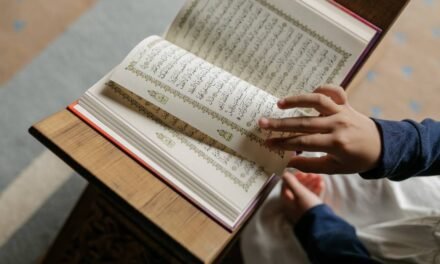Every Muslim knows the opening chapter of the Quran, Al-Fatihah. It’s like a constant companion in my prayers, its words a source of comfort and guidance. But recently, a deeper understanding of the first verse, “Bismillah al-Rahman al-Rahim” (In the name of God, the Most Gracious, the Most Merciful), opened my eyes to a whole new dimension.
Let me explain. These beautiful attributes, Ar-Rahman (The Most Gracious) and Ar-Rahim (The Most Merciful), aren’t just thrown in there. They’re like keys unlocking the meaning of the entire chapter. They appear again in the third verse, but this time with a new purpose. Here, they bridge the gap between God being the “Lord of the Worlds” (Rabb ul-Alameen) and the “King of the Day of Judgement” (Maliki yawm ad-Din).
Remember, as the “Lord of the Worlds,” God doesn’t just create things. He guides them to grow and develop. The words Ar-Rahman and Ar-Rahim shed light on this process. Ar-Rahman tells us that God equips us with everything we need to flourish – not just the resources, but also the abilities. Ar-Rahim tells us that when we use these gifts wisely, God doesn’t just reward our efforts, He inspires us to keep doing good. It’s like a never-ending cycle of progress.
This understanding blew my mind in a few ways. Firstly, it challenged the idea of “Atonement.” Ar-Rahman means God can shower us with blessings even when we don’t deserve them. Atonement, on the other hand, suggests God is limited and can only treat us based on our merits. Islam teaches that God is free to forgive, to love us unconditionally. He’s not bound by some cosmic scorecard.
Secondly, it challenged the idea of reincarnation. The idea that our limited good deeds in this life aren’t enough for eternal reward seemed flawed. Ar-Rahim shows us how God, by generously rewarding our efforts, plants a seed of desire to keep doing good. This cycle of good works and reward can go on forever, making spiritual progress limitless.
Here’s where a misunderstanding can arise. Some believers see heaven as a place of inactivity, a kind of “retirement.” But Al-Fatihah reminds us that God is still the “Lord” (Rabb) in the afterlife too. Our spiritual journey doesn’t end with death. We’ll keep doing good deeds, and God, the Most Merciful, will keep rewarding them. It’s a beautiful image of endless progress.
The only place where falling behind or progressing exists is here, on Earth. In the next life, there’s only advancement. Effort, action, and therefore progress, continue forever. So the question of limited deeds getting an unlimited reward doesn’t hold weight.





